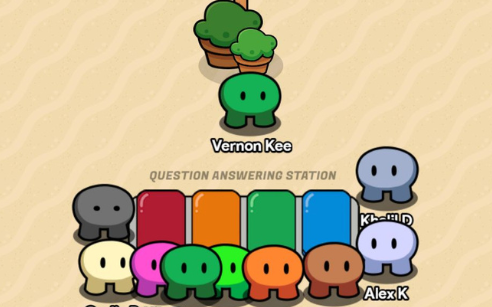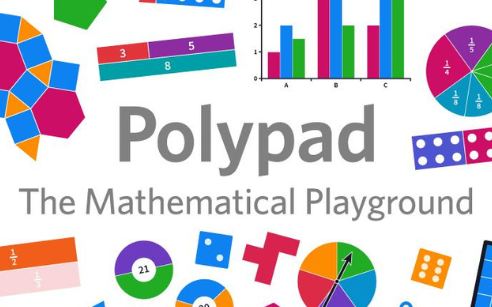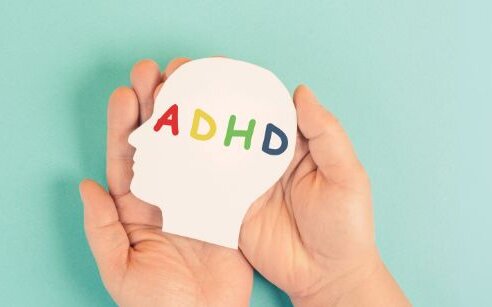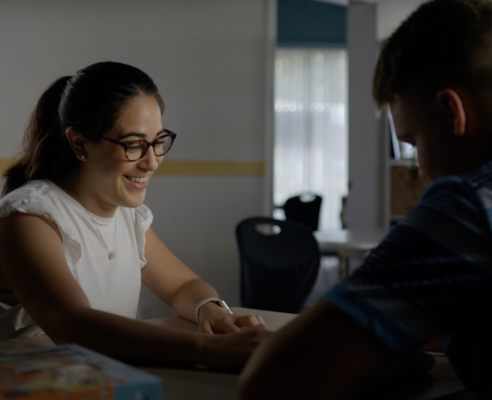
Educational Tool: Gimkit
Learn about an online educational game platform combining gaming and learning elements to create a fun, engaging, and personalized learning experience.
Learn MoreLDS offers resources, workshops and consultation to educators and professionals who would like to enhance their understanding of how to best serve and support diverse learners.

Learn about an online educational game platform combining gaming and learning elements to create a fun, engaging, and personalized learning experience.
Learn More
What can we learn from recent data about how common learning disabilities are in Canada? This article helps make sense of the data and exposes how important it is to promote early assessment and intervention of learning disabilities.
Learn More
Innovative tools continually reshape how we teach and learn. One fantastic platform that has been making waves in mathematics education is Polypad by Mathigon.
Learn More
Learn more in this short article about EF skills and how LDS works with our learners and their families to support the ongoing development of EF skills.
Learn More
Do you have a child that struggles in math? Math anxiety may be common among students, but it is not the same as a learning disability in math. Dyscalculia is a specific brain-based learning difference that affects a student’s ability to understand, learn, and perform math and number-based operations.
Learn More
ADHD (attention-deficit/hyperactivity disorder) is a neurobehavioural disorder characterized by symptoms of inattentiveness, distractibility, hyperactivity, and impulsivity. Read an introductory overview of ADHD.
Learn More
Dyslexia is a learning difference that is neurobiological in nature, makes reading difficult, and may also interfere with recognizing, spelling, writing, and decoding words. Learn to spot the signs that your child may have dyslexia.
Learn More
Our tutoring and instruction programs follow our unique Research-informed Individualized Student Education (RISE) methodology. Our emphasis is on providing customized programming that is designed specifically to meet the needs of diverse learners.
Find A Program
Educators use accommodations and modifications to create inclusive learning environments and help each student learn and grow. This downloadable PDF lists some recommendations and accommodations you might consider using with neurodivergent learners.
Download Resource
At LDS we are passionate about equipping people with knowledge and information about learning differences and how to support and advocate for individuals and groups with learning differences in educational, social, work, and community settings.
LDS provides a variety of workshops to educators. Our team also offers customized workshops for your context, bringing our extensive expertise and experience to address pressing questions and issues around how we support diverse learners.
Learn MoreLDS is actively involved in engaging in research to support evidence-based practices in education. LDS has current research partnerships with The University of Waterloo’s Social and Intelligent Robotics Research Laboratory, and the UBC Faculty of Educational and Counselling Psychology and Special Education. Additionally, LDS staff and board members also have a long history of research that contributes to knowledge and evidence-based practice in the areas of learning differences, education, teacher education, and early years.
| Integrating New Instructional Assistive Technology to Support Academic and Behavioural Instruction for Students with Learning Disabilities. Journal of Special Education Technology, 0(0). | Chandra, S., Fane, J., Azizi, N., McKenzie-Gray, M., Sager, M., & Dautenhahn, K. (2025) | Link |
| User evaluation of social robots as a tool in one-to-one instructional settings for students with learning disabilities. In Social Robotics: 14th International Conference, ICSR 2022, Florence, Italy, December 13–16, 2022, Proceedings, Part II (pp. 146-159). Cham: Springer Nature Switzerland. | Azizi, N., Chandra, S., Gray, M., Fane, J., Sager, M., & Dautenhahn, K. (2023, February). | Link |
| An Initial Investigation into the Use of Social Robots within an Existing Educational Program for Students with Learning Disabilities. 31st IEEE International Conference on Robot and Human Interactive Communication (RO-MAN 2022): Napoli, Italy. Aug 29 – Sept 02. | Azizi, N., Chandra, S., Gray, M., Sager, M., Fane, J., Dautenhahn, K. (2022). | Link |
| Interdisciplinary early intervention to support the inclusion of children with developmental disabilities. [Poster Presentation #134] 14th International Developmental Coordination Disorder Conference: Vancouver, BC. | Fane, J. (2022, July 7 – 9). | Link |
| Preschool-aged children’s accounts of their own wellbeing: Are current indicators applicable? Child Indicators Research. | Fane, J., MacDougall, C., Jovanovic, J., Redmond, G., & Gibbs, L. (2020). | Link |
| The Sociology of Early Childhood: Young Children’s Lives and Worlds. New York, New York: Routledge. | Andrew, Y. & Fane, J. (2019) | |
| Recognizing early childhood as a critical time for developing and supporting self-regulation. Metacognition and Learning, 14(3), 327-334. | Perry, N. E. (2019). | |
| Exploring the use of emoji as a visual research method for eliciting children’s voices in childhood research. Early Child Development and Care. 188(3) pp. 359-374. | Fane, J., MacDougall, C., Redmond, G., Jovanovic, J., & Gibbs, L. (2018). | Link |
| Developing self-regulating learners. New Jersey: Pearson Canada Incorporated. | Butler, D. L., Schnellert, L., & Perry, N. E. (2017). | |
| Young children’s health and wellbeing across the transition to school: A Critical Interpretive Synthesis. Children Australia, 41(2), 126-140. | Fane, J., MacDougall, C., Redmond, G., Jovanovic, J., & Ward, P. (2016). | Link |
| Reactivity to stress and the cognitive components of math disability in grade 1 children. Journal of learning disabilities, 47(4), 349-365. | MacKinnon McQuarrie, M. A., Siegel, L. S., Perry, N. E., & Weinberg, J. (2014). | |
| Creating classroom contexts that support young children’s development of self-regulated learning. International Journal of Educational Research, 33(7-8), 821-843. | Perry, N. E., & VandeKamp, K. J. (2000). | |
| The efficacy of a self-questioning summarization strategy for use by underachievers and learning disabled adolescents in social studies. Learning Disabilities Focus. | Wong, B. Y., Wong, R., Perry, N., & Sawatsky, D. (1986). |